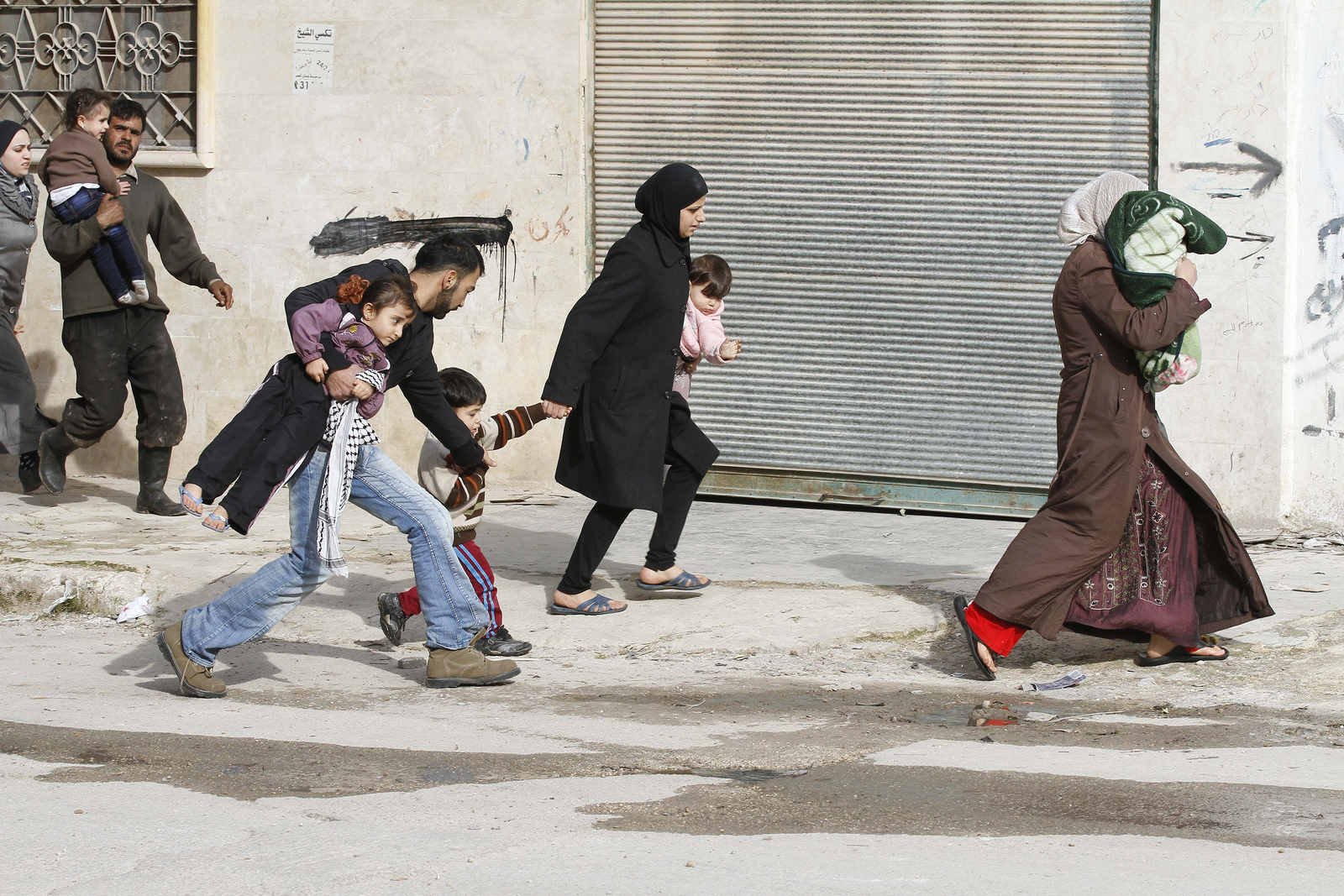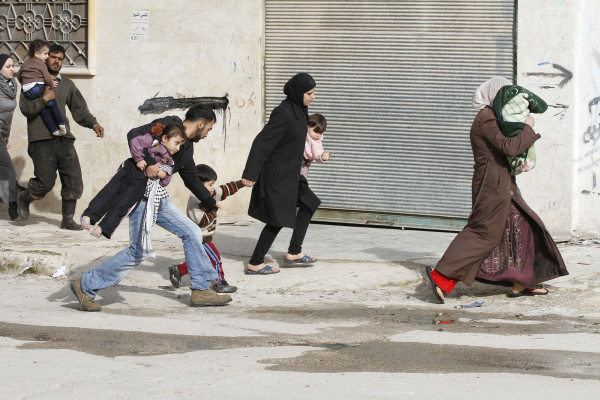
By Zehra Naviwala
In the midst of exploding bombs echoing throughout a Damascus that has been stripped of her beauty by a brutal regime, there is a twenty-one year-old man named Rashad beginning his journey to Libya to catch the next boat to Italy with his father and younger brother, Kareem. Rashad and Kareem’s mother and two younger siblings will not be joining them; in fact, the next time they will see each other is a moment set in a very obscure future, known only to Allah. Another Syrian, a young woman named Amira, will depart Syria with her mother and her ten year-old daughter, Naima, while forced to leave her husband and son behind. Amira’s path will converge with Rashad’s upon her arrival at Center Sandholm—the institution that serves as the epicenter for incoming asylum-seekers in Denmark; a camp run by the Red Cross. Their story of asylum is one of countless similar stories belonging to the 1,967 Syrians who were registered by Denmark’s Ministry of Justice in September, 2014, after fleeing civil war.
Two months later, at a Danish asylum center run by a self-governing NGO that aims to improve living conditions for asylum seekers, Amira and Rashad told their story together. Because Rashad and Amira’s families were torn apart due to the war, over the span of a couple of months, the two strangers formed a friendship, bringing the divided parts of their families together as they waited to be reunited with relatives back home.
Hundreds of other Syrians are flowing into Denmark and have to deal with being bound to the strict and systematic technicalities that accompany the Dublin Regulation.
Rashad had to voyage through Lebanon, Algeria, Libya, Italy, and Germany before reaching Denmark. From Libya to Italy, he was crammed onto a boat with two hundred Syrian passengers for five days, with no food stock, and many ill adults who died by his side before his journey ended. Amira and Rashad recounted the torment of what felt like unrelenting, endless seasickness while out on the Mediterranean. “You are seeing us after we were on a boat vomiting for days—we have lost a lot of weight,” Rashad said. Then, after hitching a ride with a relative, Rashad, his father, and his brother, Kareem, spent days and nights driving up through Italy and Germany. They crossed borders for fifteen days, without proof of nationality, and soon enough had entered a psychological no-man’s-land: the asylum center.
This journey is not unique to Rashad and Amira. Hundreds of other Syrians are flowing into Denmark and have to deal with being bound to the strict and systematic technicalities that accompany the Dublin Regulation—the European Union’s law and procedure for providing refuge to asylum-seekers who have fled their home countries. Although several countries outside of the EU support it, the Regulation plays a role in stagnating the trauma recovery process for asylum-seekers, who, in turn, cannot focus on healing if they are preoccupied with forming a temporal perception of where the next day, week, month, or year will be spent.
“During my interview [with Danish Immigration Service], I felt like I was being interrogated. They also have an advanced technology that took scans of our eyes and fingerprints. We’ve heard that we may not be able to stay here for more than a year, and have no idea where we will go next since Denmark has our fingerprint,” Rashad said, a hint of disdain in his voice. The Dublin Regulation’s fingerprint database documents an asylum-seeker’s first official record of entry in the EU, requiring the corresponding EU country to process their application. It also prevents asylum-seekers from fleeing from country to country while unauthorized. Amnesty International, the UNHCR, and similar groups have heavily criticized the Dublin Regulations for its fairness and efficiency.
Amira, who worked for the United Nations Relief and Works Agency (UNRWA) in Syria, said she had no choice but to flee due to the psychological impact the civil and political unrest in Damascus had on her daughter, Naima, who “clings to me when I send her to the Center School run by the camp” after her school in Damascus was destroyed in a bomb blast that killed many of her friends. “Now, when she sees policemen she is immediately intimidated. Any loud voice or sound will unsettle her, reminding us both of the explosions.”
Geographically and culturally isolated, Rashad faces the impalpable challenge of depression daily. “I feel like all I am doing every day is waiting.”
Amira hoped that the asylum center could facilitate a fun activity for the kids when Eid—an uplifting, colorful, festive religious celebration for Muslims—came around, in order to preserve religious and cultural traditions from home, but she claims that no efforts were made for the children. When asked about where she thinks she will go from here, she shrugged her shoulders and her face contorted with uncertainty. “Until we have achieved stability, we cannot make any ambitious plans for the future. We are living life one day at a time.”
Rashad admitted that they may seem stable and content from the outside, but “what is happening to me on the inside is not ok. This has been damaging my mind.” Both Center Sandholm—run by the Red Cross—and the asylum center have a health center on their premises, but Rashad and Amira claim that they were not made aware of a counseling program that could help residents overcome the mental trauma of the war. Instead, geographically and culturally isolated, Rashad faces the impalpable challenge of depression daily. “I feel like all I am doing every day is waiting. To kill time I play table tennis with other asylum-seekers, or basketball outside,” he said, gesturing towards a metal hoop attached to a pole standing near the camp entrance, crowded with children of all ages after dinner. Rashad also expressed his frustration with the camp’s isolation from Danish communities and lively town centers, the camp being located in a rural setting with no Danes in sight, and a fifteen-minute bus ride from the nearest grocery store. Rashad’s mind is set in limbo: while he is an asylum-seeker, he can’t make long-term plans that promise stability in either Denmark or Syria.
When Rashad and Amira were asked about building relationships with others at the Center, Amira responded that they had only spoken to others who had fled Syria, and like them, were awaiting a response from the Danish Immigration Service. Rashad pointed to an older man walking towards a separate building of flats: “His boat was near mine when I left Libya for Italy last month. But, his boat flipped over, and he lost his wife and daughter who both drowned.” His voice was detached and monotone.
“There is literally only two hours of electricity per day in Damascus, but lately I feel so depressed in Denmark that I would rather take the risk of being at home in Syria.”
Not surprisingly, the asylum center is brusque and elusive on the subject of mental healthcare: “You can’t keep calling us with these questions; we eventually make referrals to psychologists, if that’s what you wanted to know.” Denmark’s asylum system consists of outdated policies from 2002, and even though the current influx of Syrian refugees has renewed conversations in parliament, proposals on new legislation are still under review. In the heat of widespread public debate, former Justice Minister Karen Hækkerup explained the reasoning behind the introduction of the latest law that grants only a temporary one-year resident permit that may or may not be extended for another two years upon its expiration; one parliamentarian described the system as “highly controversial.” Rumors among the asylum-seekers of where this new bill will take them are rampant in the camps, perpetuating a sense of insecurity.
The gruesome chaos that Rashad and Amira witnessed prior to fleeing Syria and during their escape to Denmark is beyond comprehension. Compounded with their current sentiment of displacement and apprehension, the pair is deeply vulnerable and fragile while the wounds of trauma fester in their minds. “There is literally only two hours of electricity per day in Damascus, but lately I feel so depressed here that I think I would rather take the risk of being at home in Syria,” Rashad said. To mitigate these emotional consequences, improvements must be made to the waiting process for the hundreds of Syrians flooding Denmark. Fellow Syrian asylum-seekers, already sullen and defeated, cannot be the sole support system for newcomers. A counseling program including group therapy should be easily accessible to all asylum-seekers.
Rashad and Amira are waiting for a positive response from the Danish Immigration Service about being granted refugee status along with a residence permit until Syria is safe enough for their return. “I knew this journey would be hard, but I try to tell myself that it was worth bringing my daughter, Naima, somewhere she can be safe from the violence at home.”
Names have been changed for protection of the asylum-seekers.
Zehra Naviwala is a Peace and Justice Studies major at Wellesley College, with a concentration in Trauma & Therapy for Victims of War & Conflict. She has been studying International Humanitarian Law in Copenhagen, Denmark.

